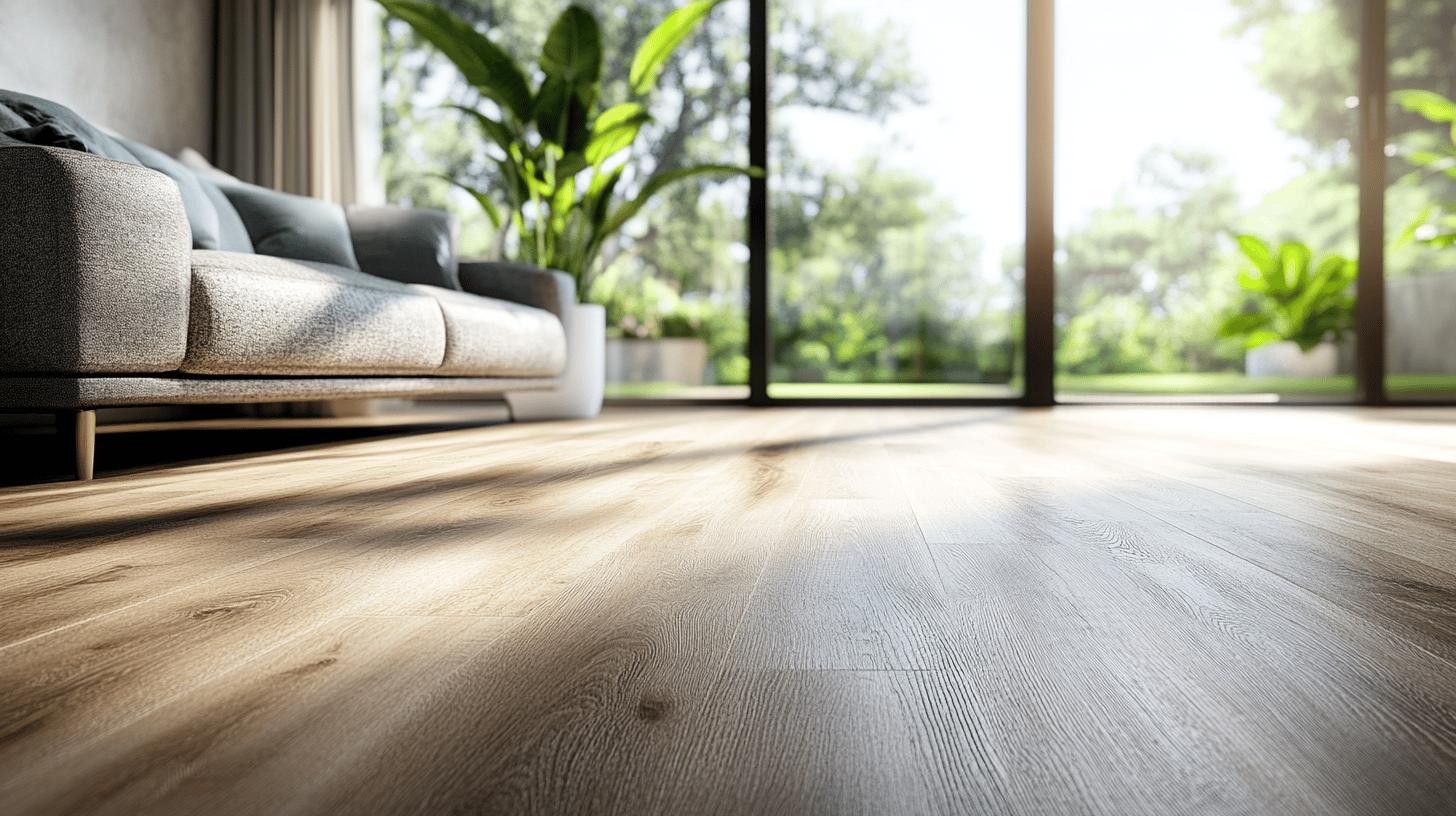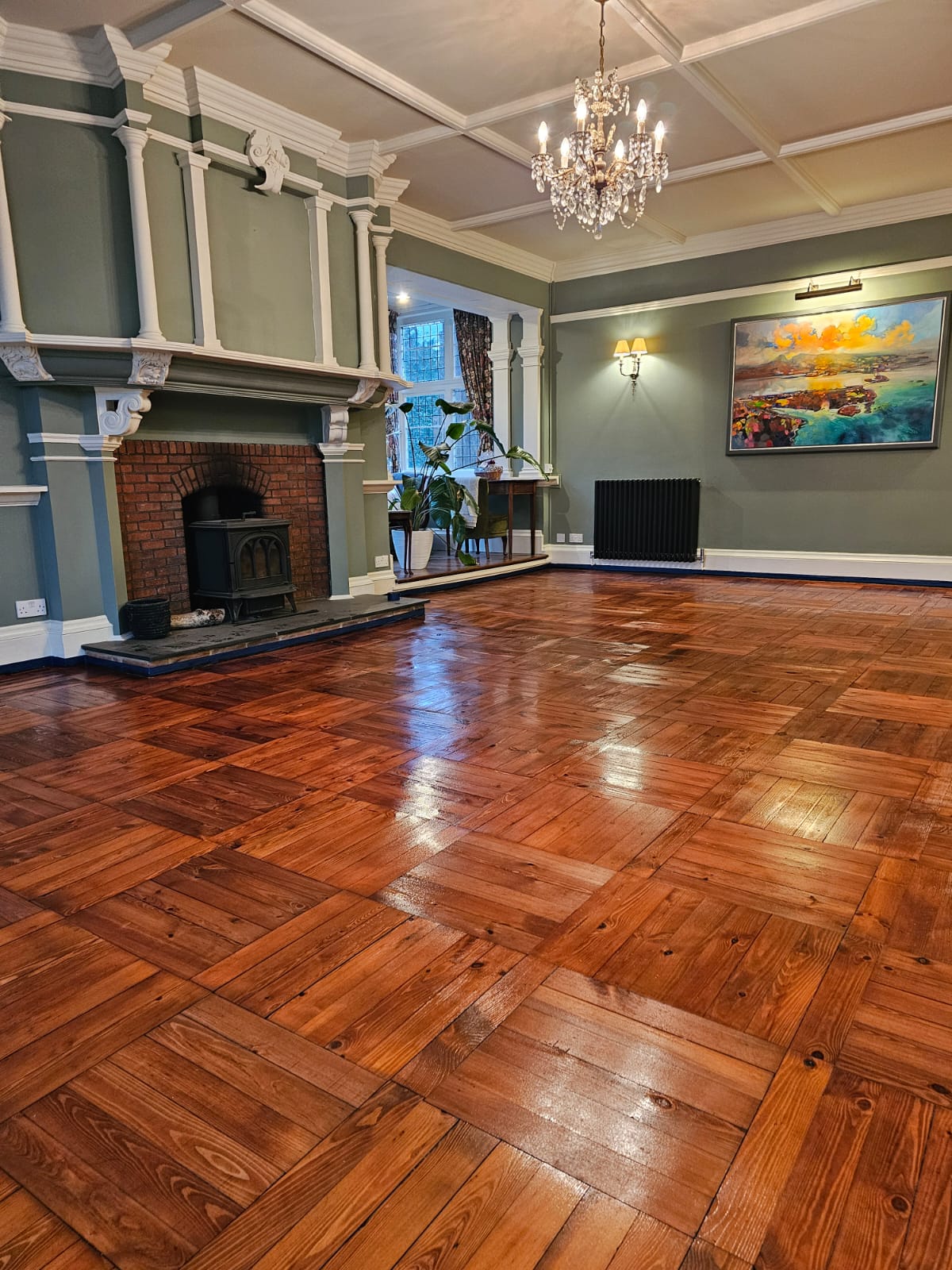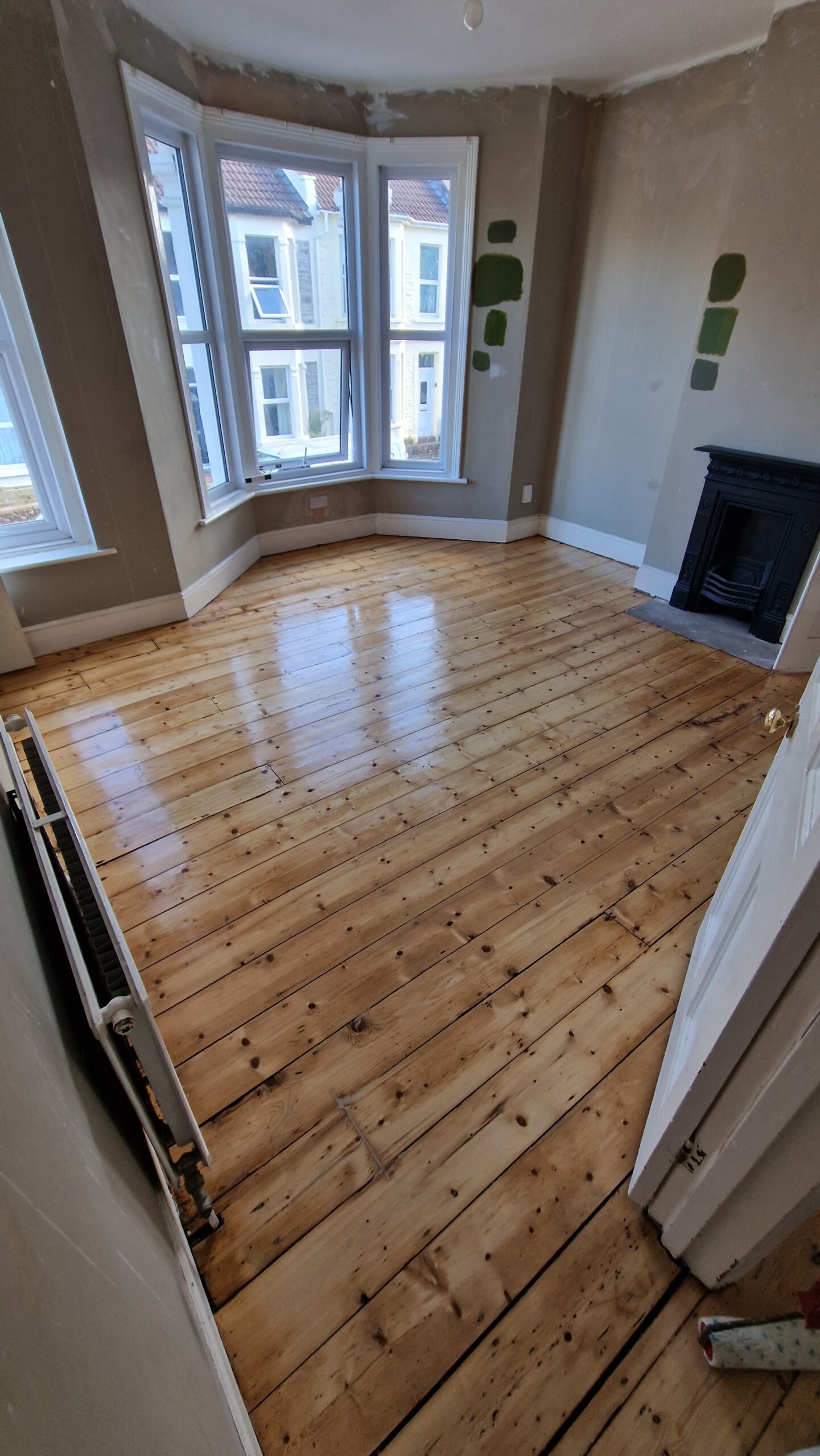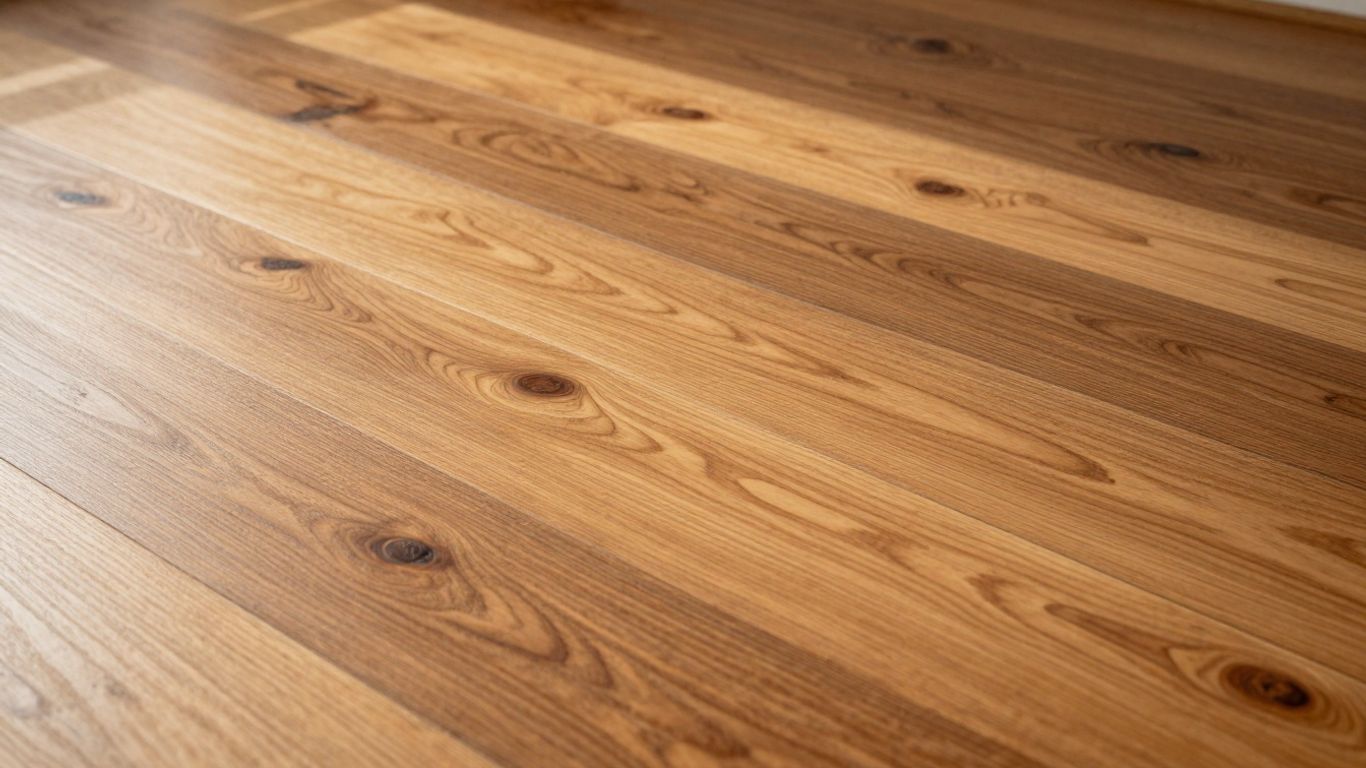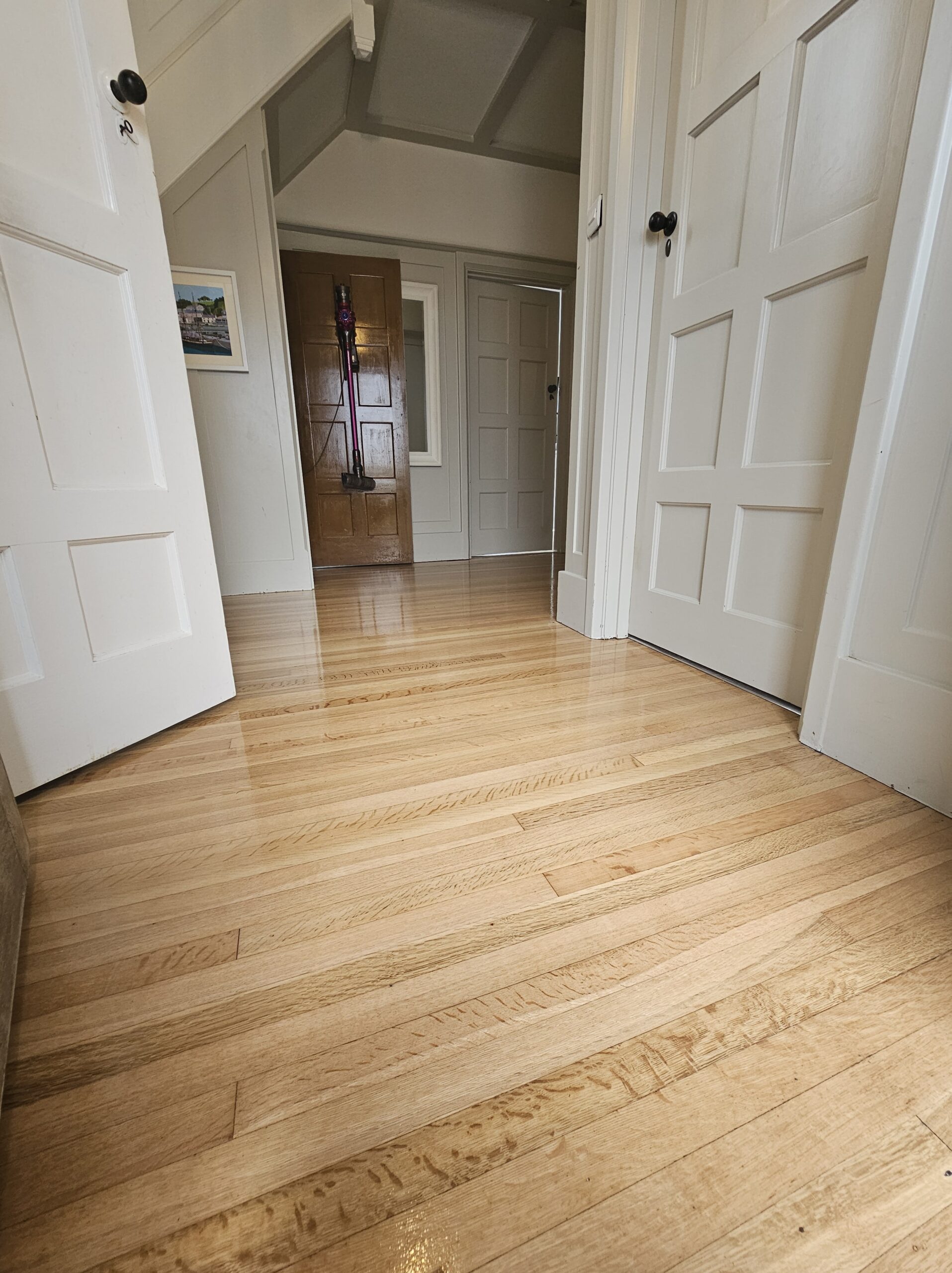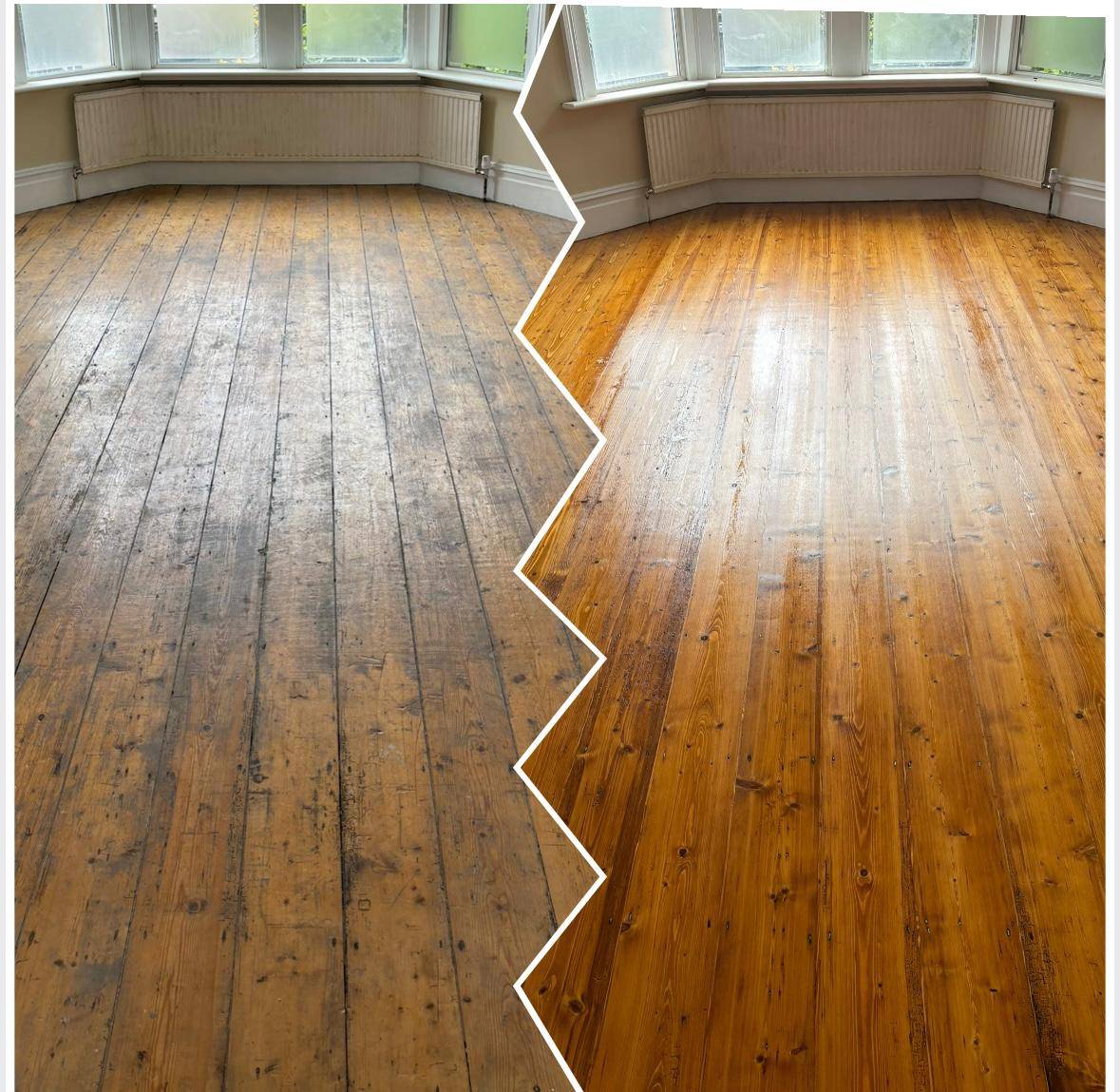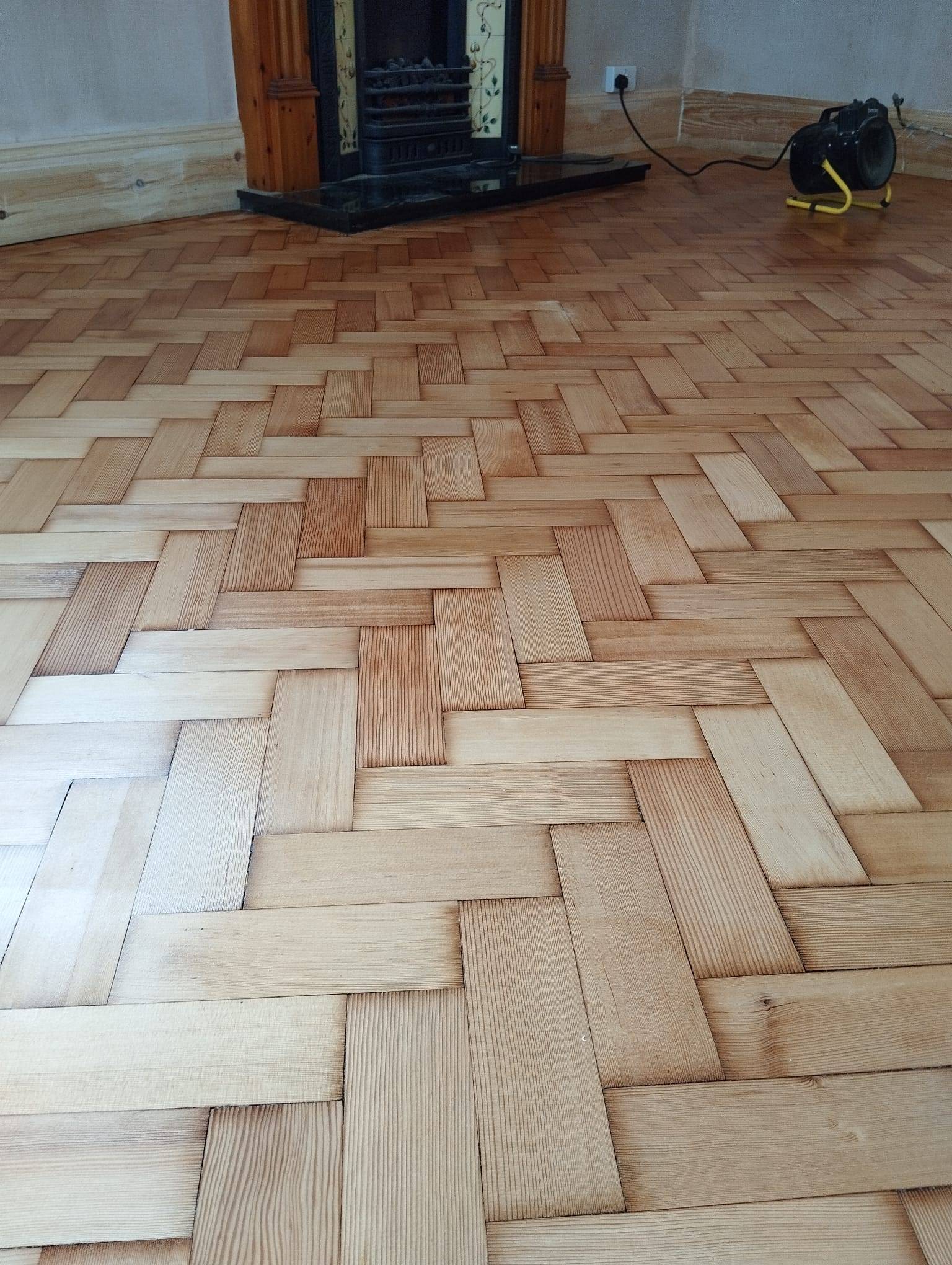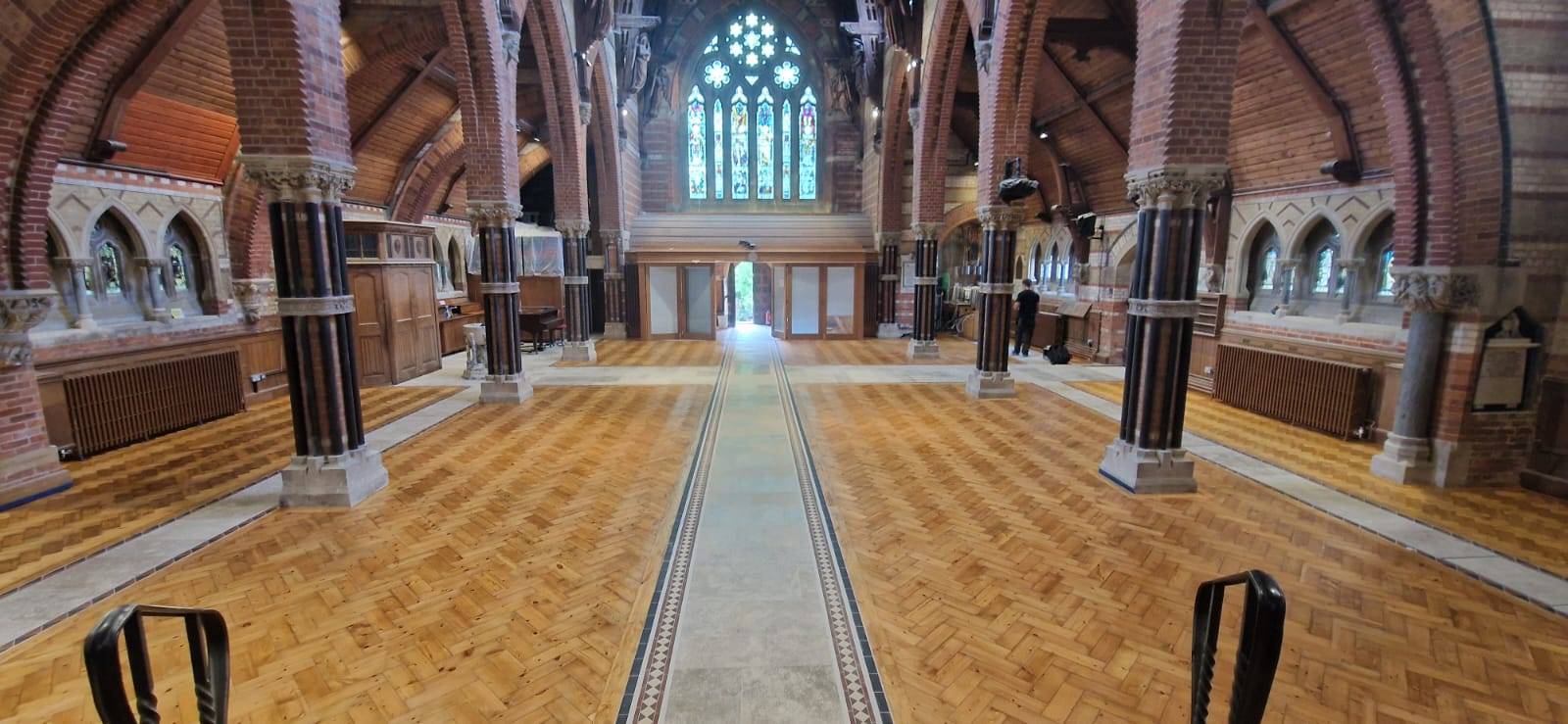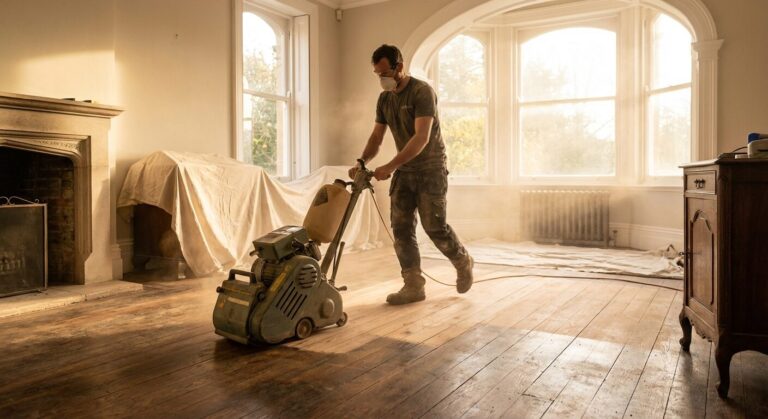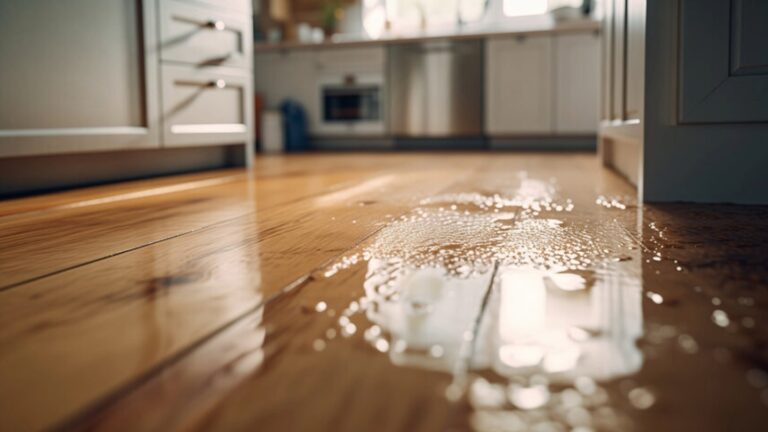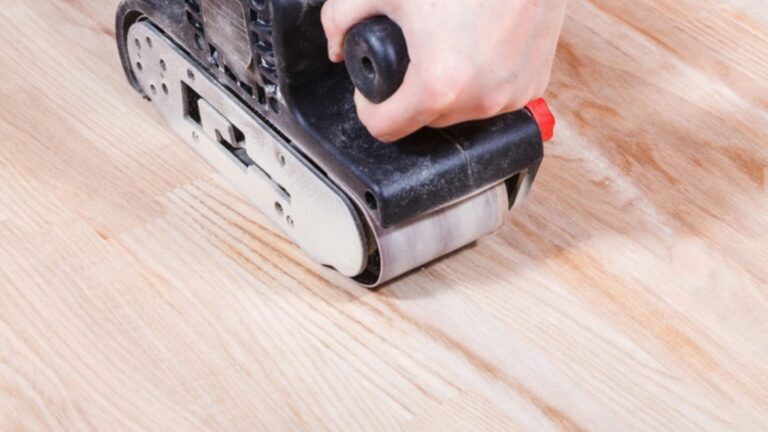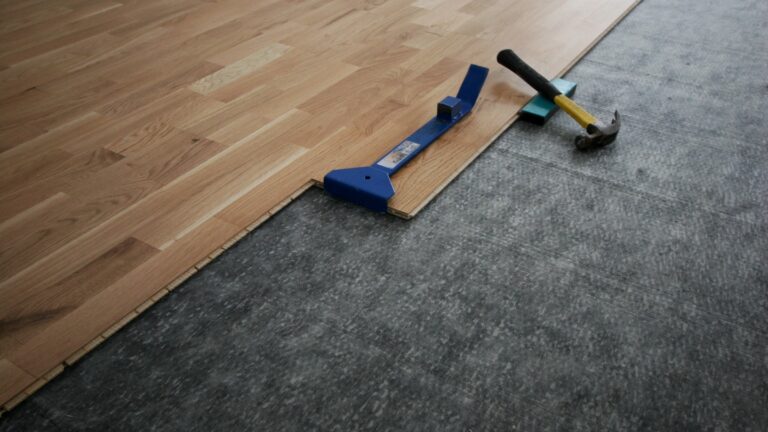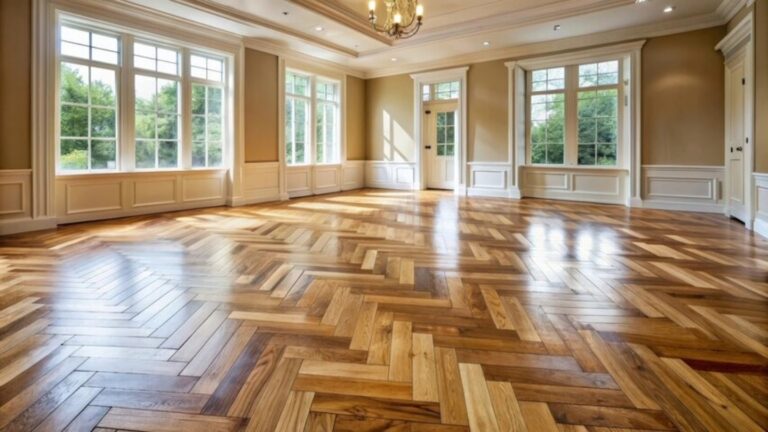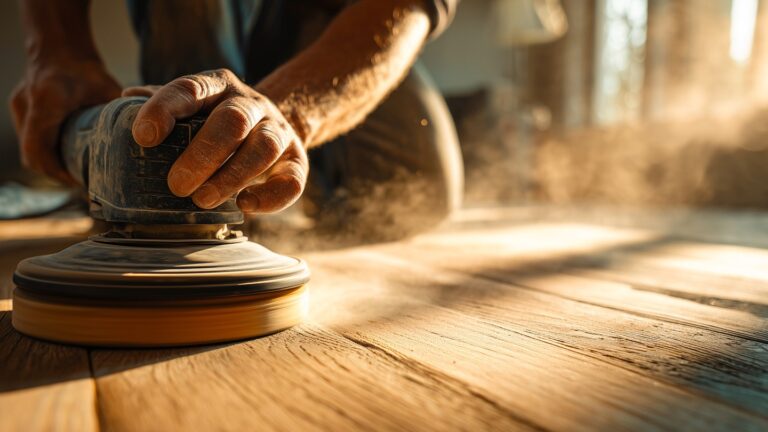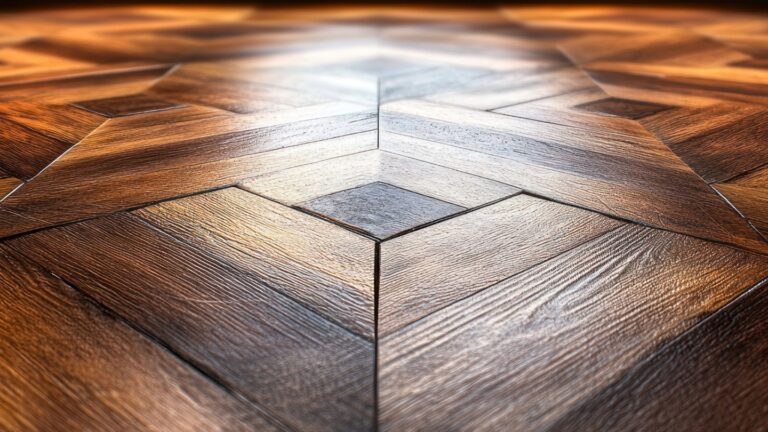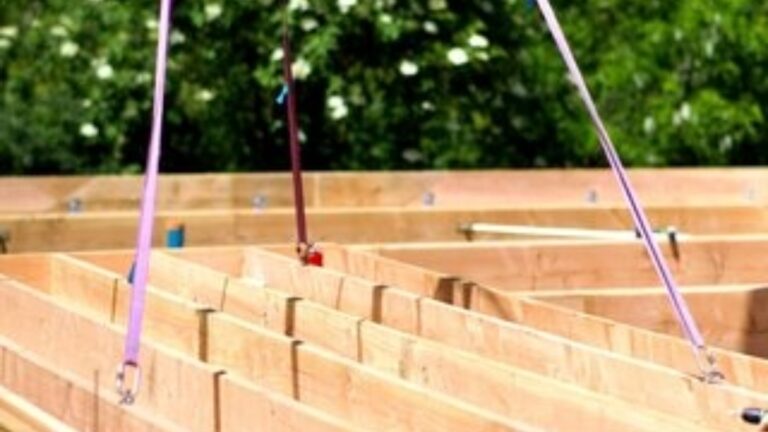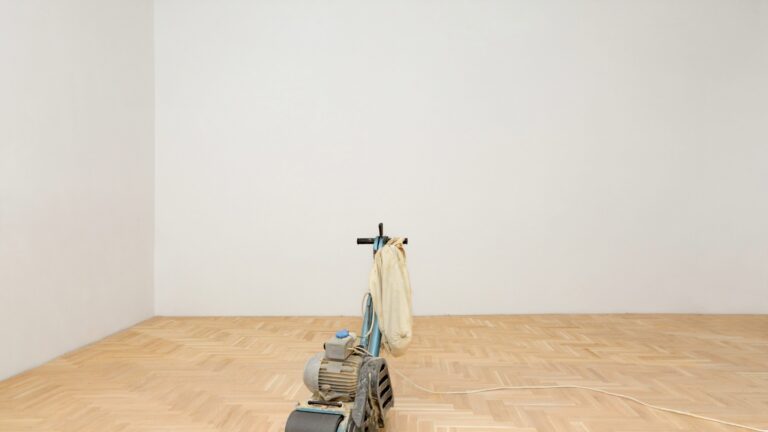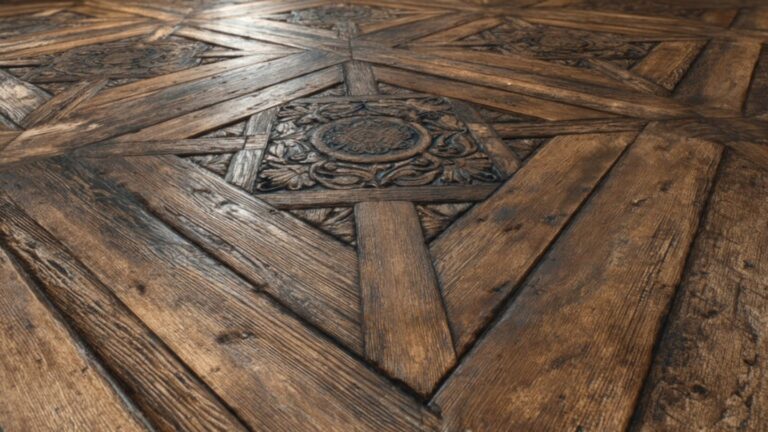Is hybrid flooring the future king of home renovation? In recent years, the advent of hybrid flooring has challenged the long-reigning appeal of hardwood restoration. Combining the best of laminate and vinyl, this flooring innovation offers unmatched durability, water resistance, and minimal maintenance. But how does it truly measure against the timeless elegance and heritage of hardwood? As hybrid flooring rises in popularity due to its practical benefits and cost-effectiveness, it prompts homeowners to reconsider traditional flooring preferences. Explore the comprehensive comparison in this article to discover if hybrid flooring is the superior choice for your next project.
Understanding Hybrid Flooring
Hybrid flooring is an innovative blend of laminate and vinyl, bringing together the best of both worlds. This flooring choice is celebrated for its durability, waterproof qualities, and low maintenance requirements. Its design features a multi-layer construction, often incorporating advanced materials like PVC, making it a versatile option for residential and commercial environments.
The composition of hybrid flooring is what sets it apart. Typically, it consists of a robust surface layer resistant to scratches, a decorative layer mimicking natural materials, a rigid core made from stone plastic composite (SPC) or wood plastic composite (WPC), and a base layer for stability. These materials collectively contribute to its remarkable strength, moisture resistance, and aesthetic appeal.
- Durability: With a scratch-resistant surface, hybrid flooring is ideal for high-traffic areas.
- Waterproof: Its impermeable nature makes it perfect for kitchens and bathrooms.
- Low Maintenance: Easy to clean with simple sweeping and mopping.
- Aesthetic Versatility: Available in a wide range of styles and patterns.
- Ease of Installation: Often features a click-lock system for straightforward installation.
Due to its adaptability and resilience, hybrid flooring is exceptionally well-suited to various environments. Its waterproof characteristics make it an excellent choice for moisture-prone areas, while its durability ensures it can withstand the demands of busy commercial spaces and family homes. Whether in a bustling shop or a serene home, hybrid flooring offers a practical and stylish solution.
Comparing Hybrid Flooring and Hardwood Restoration
Hybrid flooring has emerged as a modern solution that challenges traditional hardwood restoration, offering practical advantages in several key areas. While hardwood has long been revered for its natural beauty and timeless appeal, hybrid flooring presents itself as a superior alternative by addressing common challenges associated with hardwood.
Maintenance Requirements
How does hybrid flooring simplify maintenance compared to hardwood?
Hybrid flooring is celebrated for its minimal maintenance requirements. Unlike hardwood, which demands regular refinishing and careful upkeep to maintain its appearance and integrity, hybrid flooring only requires simple cleaning routines.
- Ease of Cleaning: Hybrid flooring can be maintained with regular sweeping and damp mopping, whereas hardwood requires more intensive care.
- Resistance to Damage: With its scratch-resistant surface, hybrid flooring withstands wear better than hardwood.
- Moisture Resistance: Hybrid flooring’s waterproof nature makes it less susceptible to water damage, a common issue with hardwood.
Aesthetic Appeal
What range of styles does hybrid flooring offer compared to hardwood?
Hybrid flooring offers diverse aesthetic options, catering to a wide spectrum of design preferences. While hardwood is limited to its natural variations, hybrid flooring can mimic various materials and styles.
- Variety of Designs: Hybrid flooring is available in numerous patterns, including wood, stone, and tile.
- Colour Options: Offers a broader palette, allowing for greater customisation than typical hardwood options.
- Consistency: Provides uniformity in appearance without the natural imperfections found in hardwood.
Cost Efficiency
How does the cost of hybrid flooring compare to hardwood, considering installation and maintenance?
Hybrid flooring is generally more cost-effective than hardwood when considering initial installation and long-term maintenance expenses. This makes it an attractive option for budget-conscious consumers seeking quality without excessive costs.
- Lower Installation Costs: Hybrid flooring often features a click-lock system, reducing labour expenses compared to hardwood.
- Reduced Maintenance Costs: Minimal upkeep means fewer expenses over time than the regular refinishing required for hardwood.
- Affordable Aesthetic: Provides a high-end look at a fraction of the cost of natural hardwood.
In summary, hybrid flooring offers significant advantages over hardwood restoration by simplifying maintenance, providing extensive aesthetic options, and ensuring cost efficiency. Its water resistance and ease of installation further enhance its appeal as a practical and stylish alternative for residential and commercial spaces.
Installation and Maintenance: Hybrid Flooring vs Hardwood
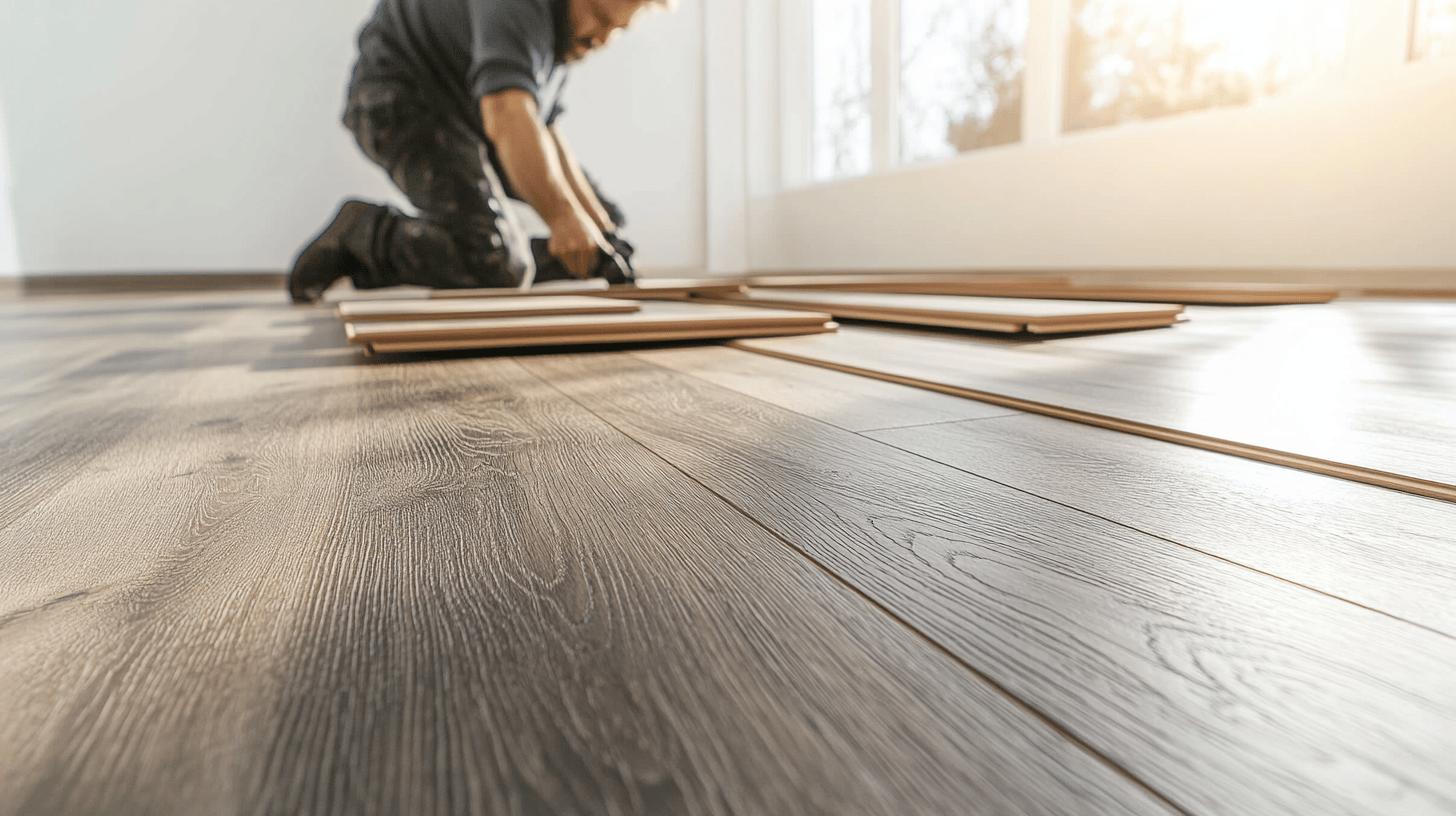
Hybrid flooring and hardwood differ significantly in terms of installation processes. Hybrid flooring is designed to simplify installation with its click-lock system, enabling easy DIY projects and reducing the need for professional installers. This system allows the planks to snap together effortlessly, making the process quicker and less costly than the more complex installation methods required for hardwood.
- Ease of Installation: The click-lock mechanism allows for straightforward, tool-free installation.
- DIY-Friendly: Homeowners can install hybrid flooring themselves, saving on professional labour costs.
- Time-Efficient: Installation time is significantly reduced compared to traditional hardwood.
- Minimal Subfloor Preparation: Hybrid flooring can often be laid over existing subfloors without extensive preparation.
Regarding maintenance, hybrid flooring offers a clear advantage with its minimal upkeep requirements. It requires only regular sweeping and occasional damp mopping to maintain its appearance. Hardwood, however, demands more intensive care, including periodic refinishing and careful protection against moisture and scratches. This ongoing maintenance can become both time-consuming and costly, unlike the straightforward care routine of hybrid flooring.
The potential cost savings with hybrid flooring are substantial. The ease of DIY installation eliminates expensive professional fees, and its low maintenance needs mean fewer long-term expenses. These factors make hybrid flooring a more economical choice for those looking to avoid the high costs associated with traditional hardwood flooring installations and upkeep.
Durability and Longevity of Hybrid Flooring
Hybrid flooring is engineered to withstand the rigours of daily life, making it a highly durable option. The construction boasts a scratch-resistant top layer, which protects against everyday wear and tear, and a sturdy plywood base that enhances stability and strength. This robust design ensures that hybrid flooring maintains its appearance and structural integrity over time, providing a reliable solution for residential and commercial spaces.
Due to its resilience, hybrid flooring excels in high-traffic areas, such as living rooms, kitchens, and hallways. Its ability to resist dents and scratches makes it a practical choice for homes with children or pets where floors are subject to frequent activity and potential damage. The waterproof nature of hybrid flooring further contributes to its suitability in moisture-prone spaces, preventing warping and swelling that can occur with traditional wood floors. This combination of features ensures that hybrid flooring not only endures but also maintains its aesthetic appeal amidst the demands of a busy household.
| Feature | Hybrid Flooring | Hardwood |
|---|---|---|
| Scratch Resistance | High | Moderate |
| Water Resistance | Excellent | Poor |
| Suitability for high-traffic | Very Suitable | Moderate |
While hybrid flooring offers notable durability, its lifespan ranges from 10 to 20 years, which may necessitate replacement sooner than hardwood, known for its potential to last a lifetime with proper care. Despite this, the ease of maintenance and installation and its cost-effectiveness make hybrid flooring a compelling choice for those seeking durability without the extensive upkeep associated with hardwood.
Aesthetic Appeal and Design Flexibility
Hybrid flooring stands out for its impressive visual characteristics, offering homeowners myriad aesthetic possibilities. The flooring is designed to mimic the appearance of traditional materials such as hardwood, marble, or concrete, providing an affordable way to achieve a luxurious look. This versatility allows homeowners to enjoy the beauty of natural materials without the associated cost and maintenance challenges. The wide array of colours and patterns ensures that hybrid flooring can seamlessly integrate into diverse interior styles, from classic to contemporary.
- Wood Grain: Offers the look of oak, maple, or walnut.
- Stone Patterns: Emulates the elegance of marble or granite.
- Tile Designs: Mimics traditional ceramic or porcelain tiles.
- Contemporary Finishes: Includes sleek, modern appearances.
- Rustic Styles: Provides a weathered, antique wood look.
Hybrid flooring’s adaptability to different interior design themes is one of its strongest features. For homeowners looking to create a cohesive aesthetic, hybrid flooring can be customised to match existing decor and architectural elements. Whether aiming for a minimalist look or a more ornate design, the wide selection of patterns and finishes available in hybrid flooring allows for significant personalisation. This makes it a preferred option for those wishing to enhance their space with a stylish yet practical flooring solution that aligns with their unique vision.
Environmental Impact and Sustainability of Hybrid Flooring
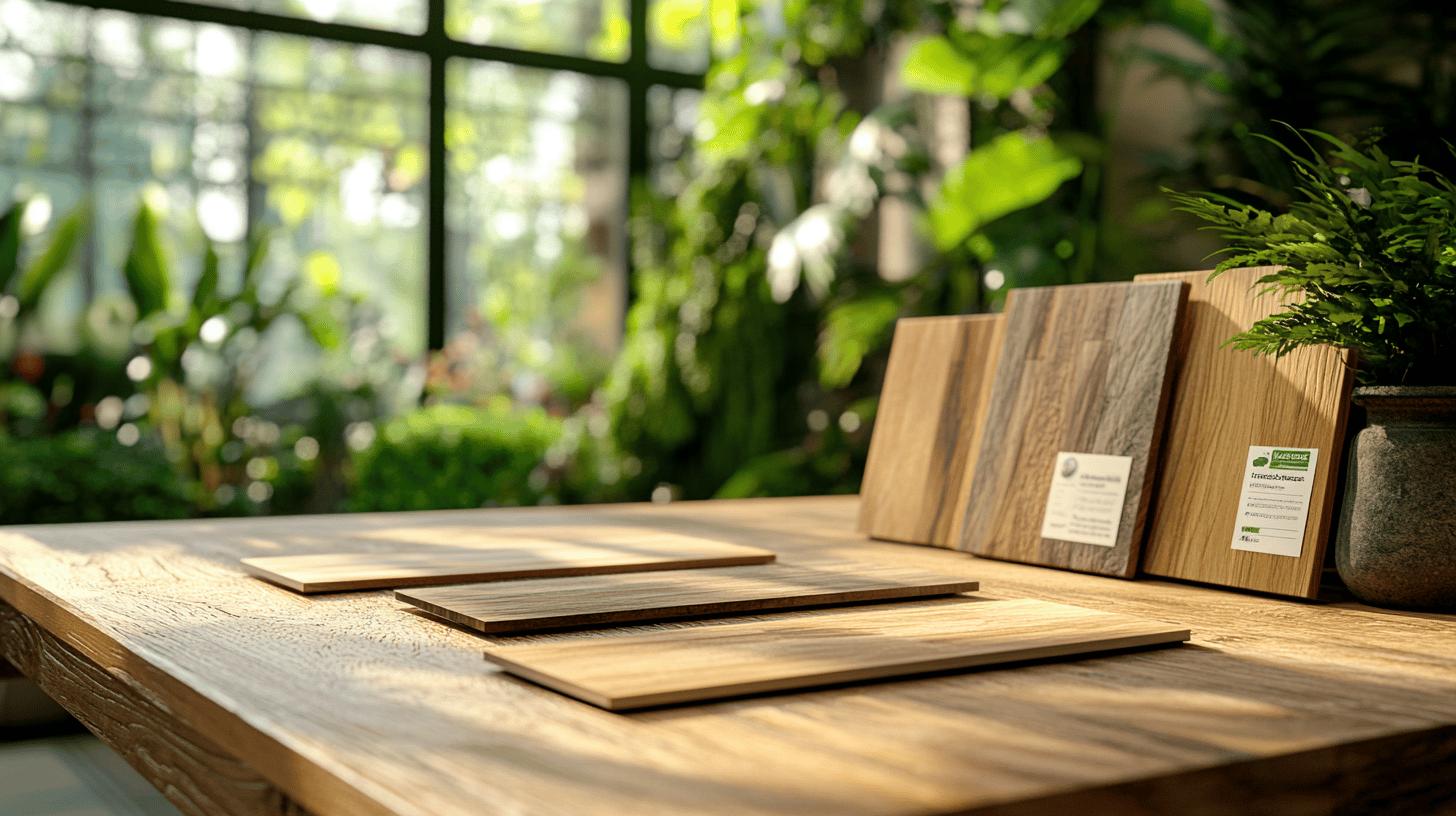
What are the environmental concerns associated with hybrid flooring? Hybrid flooring is not biodegradable, which poses significant environmental problems. Its production process and eventual disposal can negatively impact the environment. However, the long-lasting nature of hybrid flooring can help mitigate some of these issues by reducing the need for frequent replacements, thus decreasing the overall waste generated.
Manufacturers increasingly incorporate recycled materials into hybrid flooring to address these environmental challenges. Using materials like recycled PVC and other sustainable components, they aim to minimise the carbon footprint of production. Additionally, ongoing advancements in manufacturing processes seek to reduce emissions and energy consumption, further lessening the ecological impact of hybrid flooring. This shift towards more sustainable practices highlights the industry’s commitment to environmental responsibility.
- Opt for brands that use recycled materials in their products.
- Consider flooring options with lower volatile organic compound (VOC) emissions.
- Choose manufacturers that focus on sustainable production techniques.
The durability of hybrid flooring plays a crucial role in its sustainability profile. Providing a resilient and long-lasting flooring solution significantly reduces the need for replacement. This conserves resources and minimises waste, as fewer flooring materials are discarded over time. As a result, hybrid flooring presents itself as a more environmentally friendly option when considering its entire lifecycle.
Expert Opinions and Real-World Examples
Experts recommend hybrid flooring for its practicality and cost-effectiveness, especially in moisture-prone areas. It combines the best features of laminate and vinyl, offering an ideal solution for residential and commercial settings. Its water-resistant properties and ease of maintenance make it a standout choice, as it effectively addresses common flooring challenges such as moisture damage and intensive upkeep.
- Commercial Spaces: Widely used in cafes and retail stores for durability and aesthetic appeal.
- Residential Bathrooms: Ideal for wet environments, preventing warping and water damage.
- High-Traffic Areas: Favoured in busy households for its scratch-resistant surface and longevity.
Flooring showrooms play a crucial role in showcasing the versatility and appeal of hybrid flooring. By displaying a variety of styles and finishes, showrooms allow customers to experience the look and feel of hybrid flooring firsthand, aiding in the decision-making process. This exposure helps consumers appreciate its practical benefits and visual versatility, reinforcing its status as a superior flooring choice.
Final Words
Exploring the Rise of Hybrid Flooring examined its durable, waterproof nature and low maintenance characteristics. Comparing it to hardwood restoration, the analysis highlighted hybrid flooring’s superior cost efficiency and ease of installation.
Despite concerns about environmental impact, its longevity can enhance sustainability.
The broad range of aesthetic options further solidifies hybrid flooring’s appeal. Expert endorsements and real-world applications affirm its practicality, making it a compelling alternative to traditional hardwood restoration.
Overall, hybrid flooring offers a modern solution for those seeking both functionality and style in their flooring needs.
FAQ
Q: What is hybrid resilient flooring?
A: Hybrid resilient flooring combines the benefits of laminate and vinyl, offering durability, waterproof properties, and low maintenance. It is designed for both residential and commercial use and has advanced multi-layer construction.
Q: How does hybrid resilient flooring compare with luxury vinyl plank?
A: Hybrid flooring offers enhanced water resistance and a click-lock system for easier installation, making it more user-friendly than a luxury vinyl plank while providing similar aesthetic options.
Q: What are the downsides of hybrid flooring?
A: Potential downsides of hybrid flooring include its non-biodegradable nature, limited lifespan compared to hardwood, and environmental concerns related to production and disposal.
Q: Is hybrid flooring better than hardwood?
A: Hybrid flooring may be preferable for those seeking low maintenance, water resistance, and ease of installation. However, if properly maintained, hardwood offers a traditional aesthetic and a longer lifespan.
Q: What is the alternative to refinishing hardwood floors?
A: Alternatives to refinishing hardwood floors include replacing them with materials like hybrid flooring, which offers high durability and varied design choices without regular refinishing.
Q: Is it better to refinish or restore hardwood floors?
A: Refinishing maintains the original look and extends the lifespan of the floors, but restoration can revitalise very worn floors, potentially making them appear like new while preserving their authenticity.
Q: How does DIY hybrid floorboard installation work?
A: A click-lock system simplifies DIY installation of hybrid floorboards, allowing for straightforward assembly without professional assistance and often reducing the overall cost of installation.
Q: What considerations should be made for DIY wood flooring?
A: When considering DIY wood flooring, assess the complexity of installation, necessary tools, and your own skill level. Materials like hybrid flooring can simplify the process with features like click-lock assembly.
